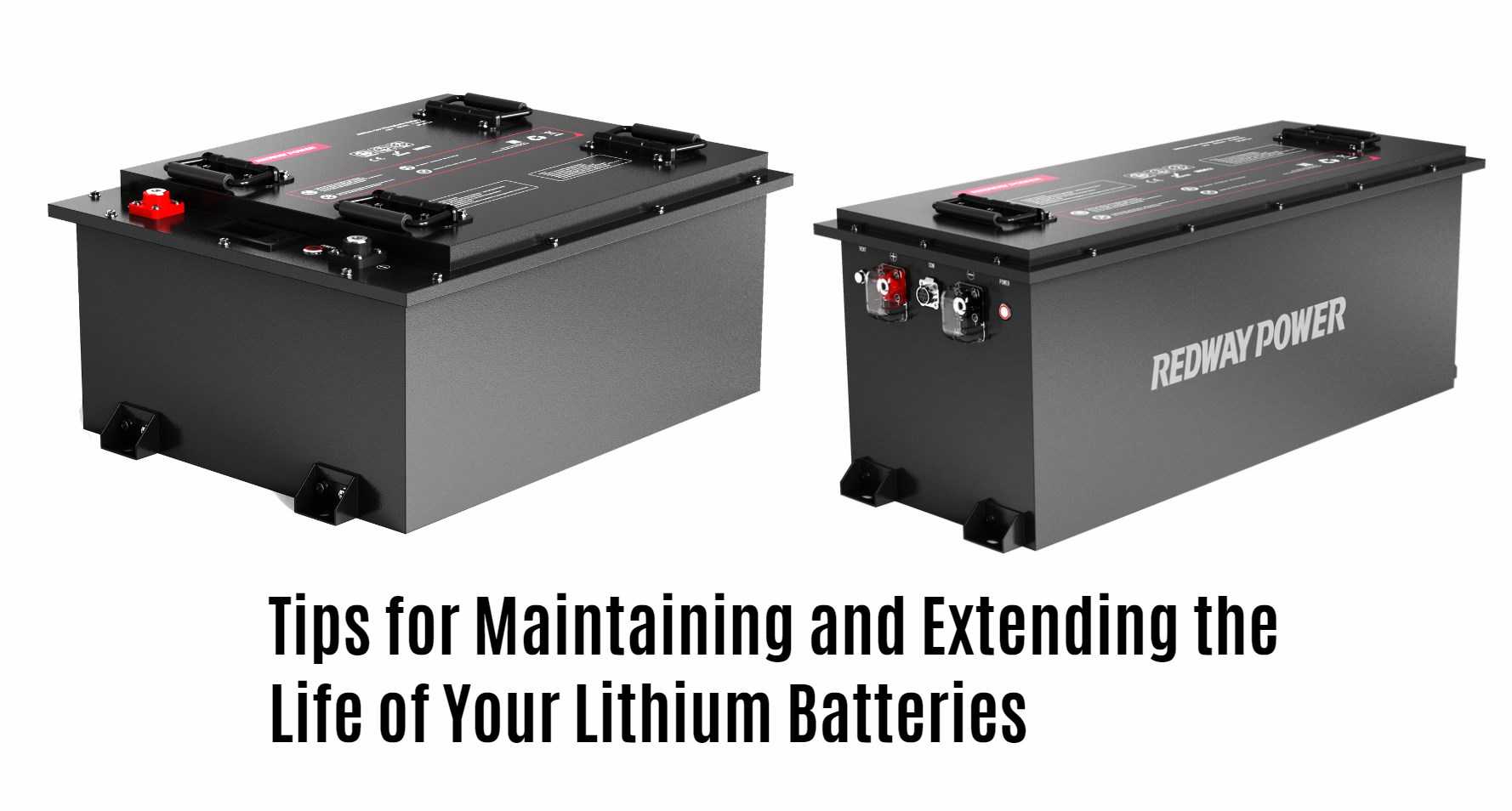Upgrade your golf cart to lithium batteries for improved performance, longer range, and reduced maintenance. When your lead-acid batteries show signs of corrosion or diminished capacity, it’s time to consider a lithium golf cart battery conversion. Although there may be an initial expense, the long-term benefits in terms of efficiency and longevity make it a worthwhile investment.
- Improved Performance: Upgrading to lithium batteries provides your golf cart with enhanced performance capabilities. These batteries offer higher power output, allowing for better acceleration and performance on the course.
- Longer Range: Lithium batteries have a higher energy density compared to lead-acid batteries, resulting in a longer range for your golf cart. This means you can enjoy more rounds of golf without worrying about running out of power.
- Reduced Maintenance: Lithium batteries require less maintenance compared to lead-acid batteries. They do not require regular watering or equalization charging, saving you time and effort in maintaining your golf cart’s batteries.
The Importance of Battery Life and Performance in Golf Carts
Battery life and performance are crucial in golf carts as they directly affect the range and functionality of the vehicle. Regular charging, maintenance, and timely repairs are important for maximizing battery life. Understanding the average lifespan of golf cart batteries and the advantages of technologies like lithium batteries can help golf cart owners ensure reliable and long-lasting performance.
- Maximizing Battery Life: Regular charging and proper maintenance are key to maximizing the lifespan of golf cart batteries. Following recommended charging practices and addressing any issues promptly can help extend battery life and maintain optimal performance.
- Importance of Timely Repairs: Regular maintenance and timely repairs of golf cart batteries are crucial for improving their overall performance. Identifying and addressing issues such as corrosion, low voltage, or damaged cells can help ensure reliable and efficient operation.
- Advantages of Lithium Batteries: Lithium batteries offer several advantages over traditional lead-acid batteries. They provide extended range and usage time on a single charge, have a longer lifespan, and require less maintenance. Upgrading to lithium batteries can enhance the performance and efficiency of golf carts.
What are Lithium Batteries?
Lithium batteries, also known as lithium-ion or Li-ion batteries, are widely used rechargeable batteries. They store and release energy by utilizing the reversible intercalation of Li⁺ ions into electronically conducting solids. Lithium-ion batteries consist of single or multiple lithium-ion cells with a protective circuit board. These batteries offer high energy density, lightweight design, and longer lifespan compared to other battery technologies.
- Rechargeable Battery Technology: Lithium batteries, specifically lithium-ion or Li-ion batteries, are a type of rechargeable battery. This means they can be charged and discharged multiple times, making them a sustainable and cost-effective power source.
- Intercalation Process: Lithium batteries store and release energy through the reversible intercalation of Li⁺ ions into electronically conducting solids. This process allows for efficient energy storage and retrieval, contributing to the high performance of lithium batteries.
- Advantages of Lithium Batteries: Lithium-ion batteries offer several advantages over other battery technologies. They have a higher energy density, meaning they can store more energy in a smaller and lighter package. Additionally, lithium batteries have a longer lifespan, allowing for extended usage before needing replacement.
In conclusion, upgrading to lithium batteries ensures a streamlined golf cart with enhanced battery life and performance, providing a worthwhile investment for an improved playing experience on the greens.
Benefits of Upgrading to Lithium Batteries for Golf Carts
Upgrading to lithium batteries for golf carts provides numerous benefits. Lithium-ion batteries, known for their lightweight and compact design, significantly improve golf cart performance. The reduced weight reduces strain on the motor, resulting in increased speed and enhanced maneuverability on the course. Furthermore, lithium batteries have a longer lifespan, require less maintenance, and offer faster charging times, making them a worthwhile investment for golf cart owners.
- Enhanced Performance: Lithium batteries significantly improve the performance of golf carts. Their lightweight and compact nature reduce the overall weight of the cart, resulting in improved speed and maneuverability. Golfers can enjoy a smoother and more responsive ride on the course.
- Longer Lifespan: Compared to traditional lead-acid batteries, lithium batteries have a longer lifespan. This means golf cart owners can expect extended usage before needing to replace the batteries, saving both time and money in the long run.
- Reduced Maintenance: Lithium batteries require less maintenance compared to lead-acid batteries. They do not require regular watering or equalization charging, simplifying the upkeep process for golf cart owners. This allows for more time spent enjoying the game rather than tending to battery maintenance.
- Faster Charging Times: Lithium batteries offer faster charging times, allowing golf cart owners to get back on the course quickly. With reduced charging times, golfers can maximize their playing time and enjoy uninterrupted rounds of golf.
In conclusion, upgrading to lithium batteries for golf carts brings a multitude of benefits. From enhanced performance and increased speed to longer lifespan and reduced maintenance, lithium batteries offer a superior power source for golf cart owners. With their lightweight design and faster charging times, golfers can spend more time on the course and less time worrying about battery maintenance. Upgrade your golf cart to lithium batteries and elevate your golfing experience to new heights.
Lead-Acid vs. Lithium Batteries in Cost
Lead-acid batteries are generally less expensive upfront compared to lithium batteries. However, when considering the total cost of ownership, including factors such as lifespan and maintenance, lithium batteries can be a more cost-effective choice. The total cost of ownership per usable kWh is about 2.8 times cheaper for a lithium-based solution compared to a lead-acid solution. It is important to assess the specific needs and requirements of the application to determine the most cost-efficient battery option.
- Upfront Cost: Lead-acid batteries generally have a lower upfront cost compared to lithium batteries. This can make them an attractive choice for those on a tight budget or looking for a more affordable option.
- Total Cost of Ownership: When considering the total cost of ownership, including factors such as lifespan and maintenance, lithium batteries can offer cost savings over time. Their longer lifespan and lower maintenance requirements contribute to a lower total cost.
- Energy Density: Lithium batteries have a higher energy density, meaning they can store more energy in a smaller and lighter package. This can result in cost savings in terms of transportation and installation, especially in applications where weight and space are critical factors.
Tips for Maintaining and Extending the Life of Your Lithium Batteries
To maintain and extend the life of your lithium batteries, follow these tips: minimize the time spent at extreme charge levels, avoid deep cycling, avoid overcharging by doing partial charges up to 80% state of charge, ensure proper airflow for cooling, and regularly check the charge level of unused batteries. These practices can help maximize the performance and longevity of your lithium batteries.
- Minimize Extreme Charge Levels: Avoid keeping your lithium batteries at extreme charge levels, such as 100% or 0%. These states of charge can put stress on the battery and reduce its lifespan. Aim to keep the battery within a moderate charge range.
- Avoid Deep Cycling: Deep cycling, which involves discharging the battery to very low levels, can also impact its longevity. Instead, opt for partial charges and discharges to reduce stress on the battery and prolong its life.
- Avoid Overcharging: Overcharging the battery can lead to unnecessary wear and tear. Consider charging the battery up to 80% state of charge instead of a full 100% charge. This can help prevent overcharging and extend the battery’s lifespan.
- Ensure Proper Airflow: Proper airflow is essential for cooling lithium batteries. When using devices with lithium batteries, make sure there is adequate ventilation to prevent overheating. This can help maintain the battery’s performance and prevent damage.
- Regularly Check Charge Level: If you have lithium batteries that are not in use for an extended period, it is important to periodically check their charge level. Batteries left unused for a long time can self-discharge, which may affect their performance. Recharge them as needed to maintain optimal performance.

Redway Battery OEM Factory Wholesale Price. Get a Quick Quote Now!




